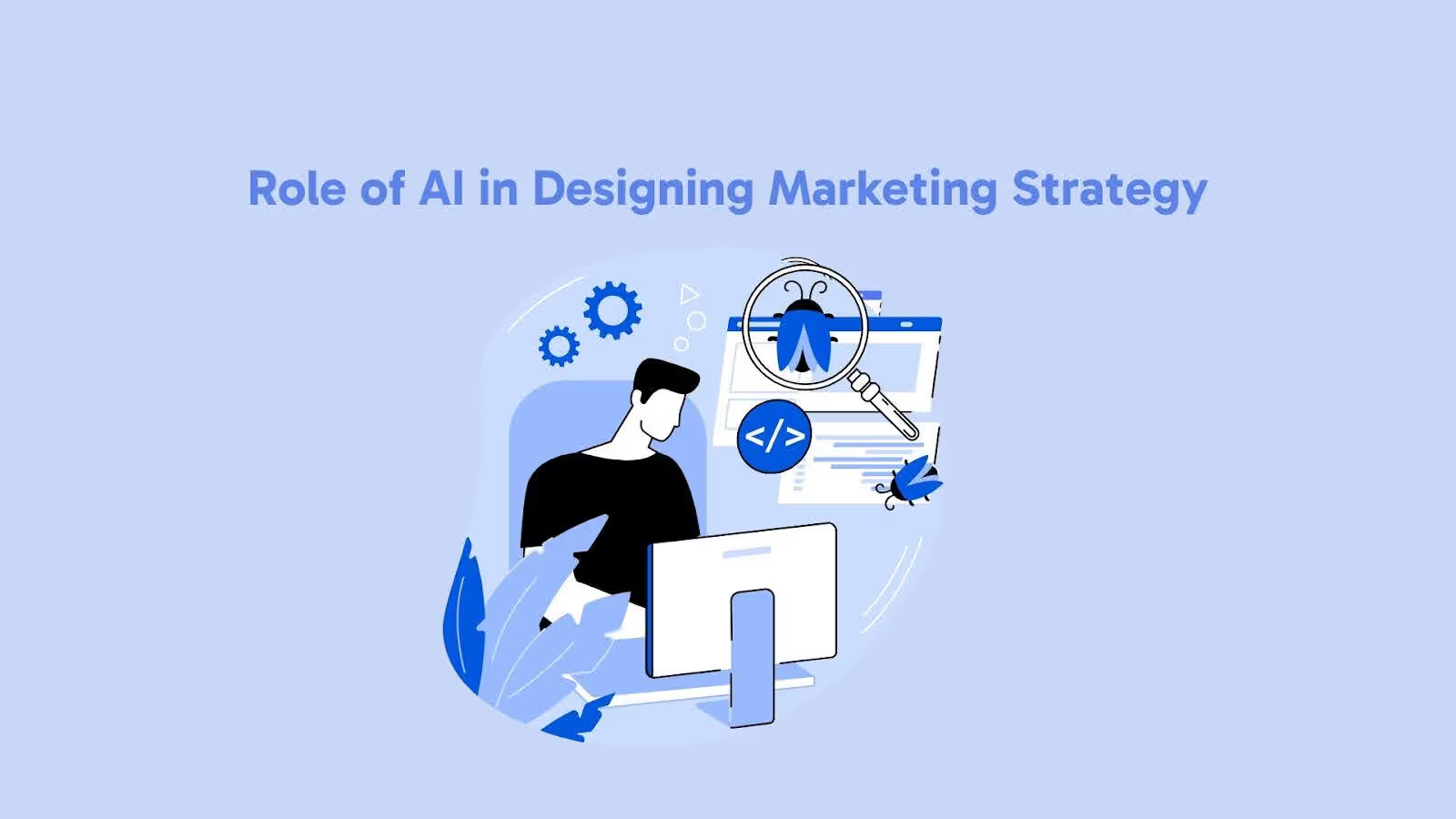In the present digital world, sales and marketing teams face constant pressure to deliver personalized, data-driven experiences on a large scale. A recent McKinsey report found that generative AI alone could boost marketing productivity by 10 % to 15 % of total marketing spend in certain use cases. As customer expectations grow, AI has become a vital tool for businesses, not only streamlining operations but also uncovering deeper insights into customer behavior.
In this blog, we explore how AI transforms sales and marketing strategies by automating routine tasks and predicting future trends, helping businesses increase revenue and improve efficiency with ease.
At a glance
- AI is transforming sales and marketing by automating tasks, analyzing data, and personalizing customer experiences.
- Key benefits include smarter lead scoring, lead qualification, predictive analytics, real-time pricing, and 24/7 customer support through AI and Voice AI.
- AI tools like Nurix AI, Salesforce Einstein, and Drift help businesses streamline operations and boost customer engagement.
- Implementing AI requires a structured roadmap, including stakeholder alignment, vendor evaluation, and continuous improvement.
- AI in sales and marketing drives efficiency, revenue growth, and competitive advantage by providing actionable insights and automating routine tasks.
What is Artificial Intelligence in Sales and Marketing, and Why Is It Important?
Artificial Intelligence (AI) in sales and marketing uses advanced algorithms and machine learning to automate, optimize, and improve various processes. It helps businesses analyze large sets of data, personalize customer interactions, predict trends, and automate repetitive tasks.
Why AI Matters in Sales and Marketing
This technology boosts efficiency and effectiveness in both sales and marketing. For example:
- AI Personalizes Customer Experiences: AI studies customer behavior and preferences to deliver marketing and sales messages that fit individual needs. This leads to stronger connections and higher chances of making a sale.
- AI Automates Routine Tasks: It takes over repetitive jobs like data entry, lead follow-ups, email campaigns, and scheduling, freeing sales and marketing teams to focus on strategy and creativity.
- AI Analyzes Data Quickly: By spotting patterns and trends in complex data, AI helps teams make smarter decisions, improve campaigns, and create accurate sales forecasts.
- AI Optimizes Marketing Campaigns: It constantly adjusts targeting, content, timing, and channels to boost the return on investment and campaign performance.
- AI Finds and Scores Leads Efficiently: AI analyzes customer data to identify and rank the most promising leads, allowing sales teams to focus on high-potential prospects. Nurix AI helps qualify leads in real-time, ensuring your team spends time on the best opportunities, speeding up the sales process.
- AI Enhances Customer Support: Chatbots and voice AI agents powered by AI provide round-the-clock assistance, ensuring quick and consistent customer service across all channels.
- AI Predicts Sales and Market Trends: It forecasts sales figures and market changes, helping businesses plan resources, inventory, and marketing efforts more effectively.
- AI Coaches Sales Teams: Analyzing sales calls and interactions, Voice AI agents, such as Nurix AI, deliver feedback to improve communication skills, compliance, and sales performance.
- AI Reduces Costs and Boosts Competitiveness: Automation cuts operational costs and allows businesses to scale up without proportional growth in staffing, giving them an edge in competitive markets.
- AI Speeds Up Customer Interactions: It handles thousands of interactions simultaneously without losing quality, dramatically reducing response times and supporting business growth.
AI transforms sales and marketing by turning data into actionable insights, automating repetitive tasks, and personalizing customer experiences, all of which drive revenue growth and give businesses a competitive advantage.
While AI's advantages are clear, the true value comes from its practical application. Let's explore ten innovative ways AI, and especially Voice AI, can elevate your sales and marketing efforts, backed by real-world success stories.
10 Powerful Ways to Boost Sales and Marketing with AI
Integrating AI and Voice AI into your sales and marketing operations can reshape customer engagement, simplify workflows, and accelerate revenue growth. Here are ten practical ways these technologies are transforming how businesses sell and market today, supported by real-world results.
1. Smarter Lead Scoring and Voice-Based Qualification
AI evaluates past interactions to prioritize leads most likely to convert, helping teams focus on high-value prospects. Voice AI complements this by managing initial qualification calls through natural conversations, letting sales reps spend more time closing deals. Salesforce used AI-powered chatbots to boost sales by 25% through automated lead handling.
2. Accurate Sales Forecasting with Predictive Analytics
AI tools analyze historical data to forecast trends and opportunities, improving planning accuracy. Platforms like Forecastio have achieved up to 95% accuracy in sales predictions, enabling smarter resource allocation and performance tracking.
3. Personalized Campaigns and Voice-Driven Engagement
AI segments audiences and tailors email content based on purchase behavior and interests, increasing open and click rates. Meanwhile, Voice AI updates customer interactions in real time with dynamic messaging and recommendations that enhance engagement.
4. 24/7 AI Chatbots and Voice Support
AI chatbots and voice assistants manage customer queries across channels around the clock, reducing wait times and improving satisfaction. Sephora’s AI assistant, for example, helps users discover products, answer questions, and complete purchases seamlessly.
5. Real-Time Dynamic Pricing and Automated Follow-Ups
AI continuously analyzes market data to optimize prices for profitability and competitiveness. Voice AI adds a personal touch through automated follow-up calls and reminders, ensuring leads are nurtured consistently and conversions stay high.
6. Intelligent Customer Segmentation with Voice Integration
AI identifies customer groups by interests and purchase history to deliver precise offers and messaging. Voice AI keeps these experiences consistent across chat, email, and call touchpoints, maintaining coherent, context-aware communication.
7. AI-Powered Content Generation and Voice Input
AI tools streamline content creation, from blogs and newsletters to social media copy. Voice AI allows teams to speak their ideas, converting speech into structured drafts, which speeds up the writing process and reduces manual effort.
8. Automated Sales Tasks and Real-Time Voice Coaching
AI handles routine sales admin such as scheduling and CRM updates. Voice AI analyzes live sales calls to give instant feedback, improving communication strategies and close rates. Clari’s AI platform, for instance, enhances both forecasting and rep coaching, raising productivity.
9. Emotional Intelligence via Sentiment and Voice Analysis
AI examines social media, reviews, and recorded calls to gauge customer sentiment and satisfaction. Voice AI further detects tone and emotion during live conversations, helping teams adjust responses and focus on the most engaged leads.
10. Predictive Retention with Proactive Voice Interaction
AI spots early signs of customer churn and triggers timely support or offers. Voice AI strengthens retention by proactively reaching out through personalized voice engagements, reinforcing loyalty and trust.
AI and Voice AI together elevate sales and marketing by automating repetitive tasks, creating deeply personalized experiences, and turning data into decisive insights. From Amazon to B2B SaaS leaders, businesses report up to revenue growth and major efficiency gains after AI adoption.
With these strategies in mind, it's important to know the right tools to implement. Let's look at some of the leading AI platforms that are making a difference in sales and marketing today.
Examples of AI Tools and Platforms in Sales and Marketing
Here is a spotlight on key AI tools and platforms shaping sales and marketing today, along with real-world examples showcasing their impact:
1. Nurix AI
Nurix AI specializes in custom AI agents that automate workflows and enhance customer engagement with advanced voice and conversational AI. It offers low-latency, human-like voice interactions supporting multiple languages, seamlessly integrating with existing CRM and marketing systems.
It offers agentic workflows that autonomously qualify leads and manage follow-ups, omnichannel conversations (voice, chat, email), real-time CRM integration, personalized engagement through data analysis, and 24/7 availability.
2. Salesforce Einstein
Salesforce Einstein integrates AI directly into the Salesforce CRM, enabling features like automated lead scoring, predictive forecasting, and personalized customer recommendations. It helps sales and marketing teams prioritize efforts and deliver tailored experiences.
3. Drift Conversational AI
Drift specializes in conversational marketing and sales, offering AI chatbots and voice bots that engage website visitors, qualify leads, and schedule meetings in real time with natural language understanding.
4. HubSpot AI
HubSpot incorporates AI for content creation, email marketing personalization, lead nurturing, and chatbots. Its AI-powered chatbots automate customer interactions across multiple channels, while AI-driven segmentation boosts campaign relevance.
5. Uniphore Voice AI Platform
Uniphore offers advanced voice AI solutions for customer engagement, including voice assistants, real-time sentiment analysis, and conversational analytics that drive sales coaching and personalized outreach.
Enterprises leveraging Uniphore’s voice AI improved customer satisfaction scores and increased sales closure rates by automating real-time coaching and personalized voice interactions.
Now that we've explored AI’s potential and examples, the next step is action. Here’s a structured roadmap to help businesses get started with AI in their sales and marketing operations, ensuring a smooth and effective implementation.
How to Get Started with AI in Sales and Marketing
Successful AI adoption requires a structured roadmap consisting of clear phases and actionable steps. Enterprise leaders can follow this detailed roadmap to build and scale AI agent strategies effectively:
Audit Current State and Define Objectives for Your AI Agent Strategy
- Assess your current sales and marketing processes to identify inefficiencies and bottlenecks
- Evaluate your existing technology stack and data readiness to support AI integration
- Define clear, realistic objectives for AI deployment aligned with broader business goals (e.g., improving lead qualification, enhancing customer engagement, optimizing sales forecasting)
- Engage key stakeholders and executive sponsors early to secure strategic alignment and budget commitment
Stack Evaluation: Vendor, Technology, Interoperability, Security
- Research and shortlist AI vendors based on their expertise in AI agents and support for your industry
- Evaluate technology compatibility with your existing systems (CRM, communication platforms) to ensure seamless integration
- Prioritize solutions that offer unified support across chat, voice, and email channels for omnichannel customer engagement
- Assess vendor data security protocols, compliance certifications, and privacy standards to mitigate risks.
Pilot-to-Scale: Training, Change Management, Culture Shift
- Identify and launch pilot projects targeting high-impact use cases with measurable outcomes (e.g., voice AI lead qualification, AI-driven email personalization)
- Develop comprehensive training programs to equip teams with the skills needed to work alongside AI agents
- Invest in change management initiatives to address employee concerns and foster a culture open to AI-driven workflows
- Redefine roles and responsibilities to leverage AI for automating routine tasks and elevating human contribution
Governance, Continuous Improvement, and Scaling Best Practices
- Establish governance frameworks to monitor AI model performance, ethical compliance, and data integrity continuously
- Implement feedback loops, collecting user input and analytics to fine-tune AI systems and resolve issues proactively
- Document learnings and share best practices across teams through communities of practice or internal forums
- Develop standards for AI ethics, transparency, and operational excellence to support responsible scaling across business units
This phased roadmap empowers enterprise leaders with actionable steps to implement AI strategically, manage operational risks, and realize continuous value across sales and marketing functions.
Overcome Sales and Marketing Challenges with Nurix AI
Sales and marketing teams face pressure to engage customers, manage data, and predict trends efficiently. Traditional methods often fall short, creating inefficiencies and missed opportunities.
Nurix AI solves this. It automates repetitive tasks, enhances customer interactions, and delivers actionable insights to improve sales and marketing performance, all in real time.
Key Features of Nurix AI:
- AI Agent Assist: Streamlines decision-making and handles queries to boost team productivity.
- AI-Driven Customer Engagement: Automates customer interactions, resolving queries and recommending products with minimal human input.
- Automated Data Analysis and Workflow Management: Analyzes data to uncover patterns and optimize decisions.
- Multilingual Support: Supports over 50 languages, ensuring global reach.
- Voice AI with Biometric Authentication: Provides secure, personalized customer interactions through voice recognition.
- Retrieval-Augmented Generation (RAG): Ensures accurate, context-aware responses based on trusted knowledge bases.
- Advanced LLM Integration: Leverages advanced AI models for high-quality, context-sensitive interactions.
- Omnichannel Integration: Delivers consistent service across voice, text, and email.
- End-to-End Encryption: Safeguards sensitive data at every stage.
- Multi-Factor Authentication: Adds an extra layer of security.
- Compliance: Meets global regulations, including GDPR, PCI-DSS, and CCPA.
- MLOps: Continuously improves performance through regular model retraining.
Ready to take your sales and marketing to the next level with Nurix AI? Book a demo today and experience the difference.








